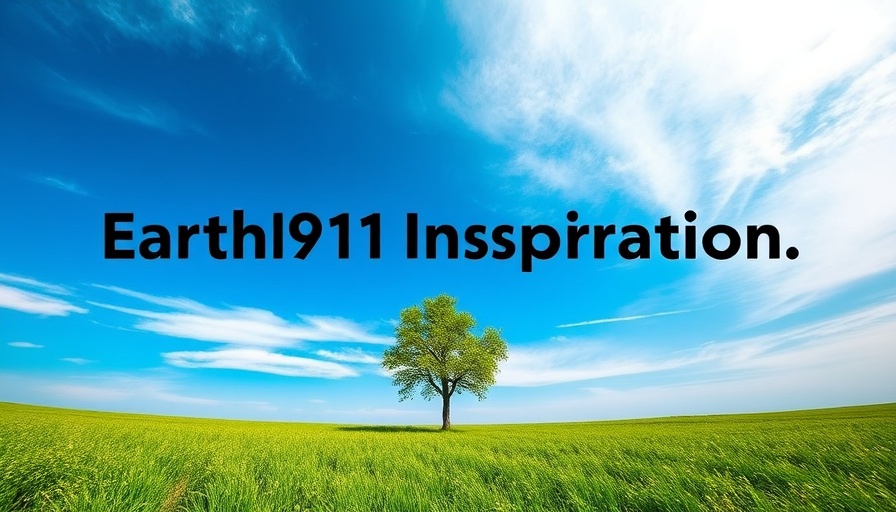
Nature as Reflection: Seeing Ourselves in the Wild
Elliot Connor, a prominent voice in environmental activism, passionately asserts, “When we look at nature, we see ourselves.” As the founder of Human Nature Projects and a dynamic young leader at just 17 years old, Connor’s work advocates for a deeper connection between humanity and the natural world. His insights are a call to embrace nature not just for its inherent beauty but also for the reflections it offers us about our behavior and choices.
Bridging the Gap Between Humans and Nature
In a world rapidly distancing itself from natural landscapes due to urbanization and technological advancement, Connor emphasizes the need for a paradigm shift in how we relate to our environment. As seen in a recent article on Earth911, the importance of nurturing our connection to nature has never been more critical, particularly in light of challenges like climate change. The essence of Connor’s message is clear: understanding nature can provide insights into our struggles, resilience, and our collective responsibility towards the planet.
Learning from Nature: A Two-Way Street
In discussing our relationship with the environment, it’s crucial to recognize that it’s not a one-way street. Connor notes that just as we take from nature, we have a responsibility to give back. Training young people through organizations like Human Nature Projects encourages grassroots involvement in environmental stewardship, which can create a profound impact on local ecosystems. In addition to his wildlife filmmaking and conservation efforts, Connor exemplifies how proactive engagement can inspire others to take action.
A Symbol of Hope: Young Activism in the Face of Crisis
The COVID-19 pandemic has revealed the potential for nature to rejuvenate in the absence of human interference, demonstrating a stark contrast between conservation efforts and the pressures of civilization. Stories of wildlife returning to urban spaces and cleaner air quality act as reminders of what can be achieved if we pivot our habits. Connor's reflections on these themes remind us that it is not too late to forge a more harmonious bond with our Earth, embracing ideas presented by environmental advocates like Jennifer Whitacre and others who understand the systemic biases that keep us apart from nature.
Nurturing Connection: The Emotional Importance of Nature
At the core of this argument lies an emotional component—establishing a relationship with nature is also about self-discovery and healing. Research suggests that spending time in green spaces enhances mental health and well-being. This is not only true for adults but is particularly vital for children. Connor advocates encourage practices such as gardening, caring for pets, and participating in community clean-ups. These connections allow individuals to develop empathy and a sense of responsibility towards the world around them.
Imagining a Sustainable Future: Collective Action
As we ponder the future, it's vital to consider how collective action can foster a new narrative in environmental conservation. The framework of ‘Mass Individualism’ proposed by Connor captures this spirit perfectly; by empowering individuals to make localized changes, a global impact can emerge. In his interactions and projects, he encapsulates the passion and optimism needed to drive forward a new vision for humanity’s coexistence with nature, emphasizing that meaningful change often begins with small, actionable decisions.
Inspiration in Everyday Life: Take Action
To integrate nature into your daily routine, consider simple yet effective steps. Planting a tree, caring for community gardens, or even observing local wildlife can deepen your appreciation for the environment. Start small, and gradually expand your efforts. Whether through volunteering, educating others, or merely spending more outdoor time, every bit helps to strengthen our connection to the Earth.
Final Thoughts: A Call for Connection
Your relationship with nature is a journey worth taking. As Connor inspires many to reflect on their interactions with the natural world, it’s essential for each individual to contemplate: How can I advocate for the environment while re-establishing my connection to it? The stories shared here—of resilience and hope—underscore this urgent need for action. It invites all of us to consider how we benefit from nature’s gifts and, in turn, how we can contribute to its preservation.
Let’s embrace the essence of Connor’s message: if we give nature the space it needs to thrive, it will reflect back to us the care we invest. Connect with your environment, learn accordingly, and let nature inspire you each day.
 Add Row
Add Row  Add
Add 




Write A Comment